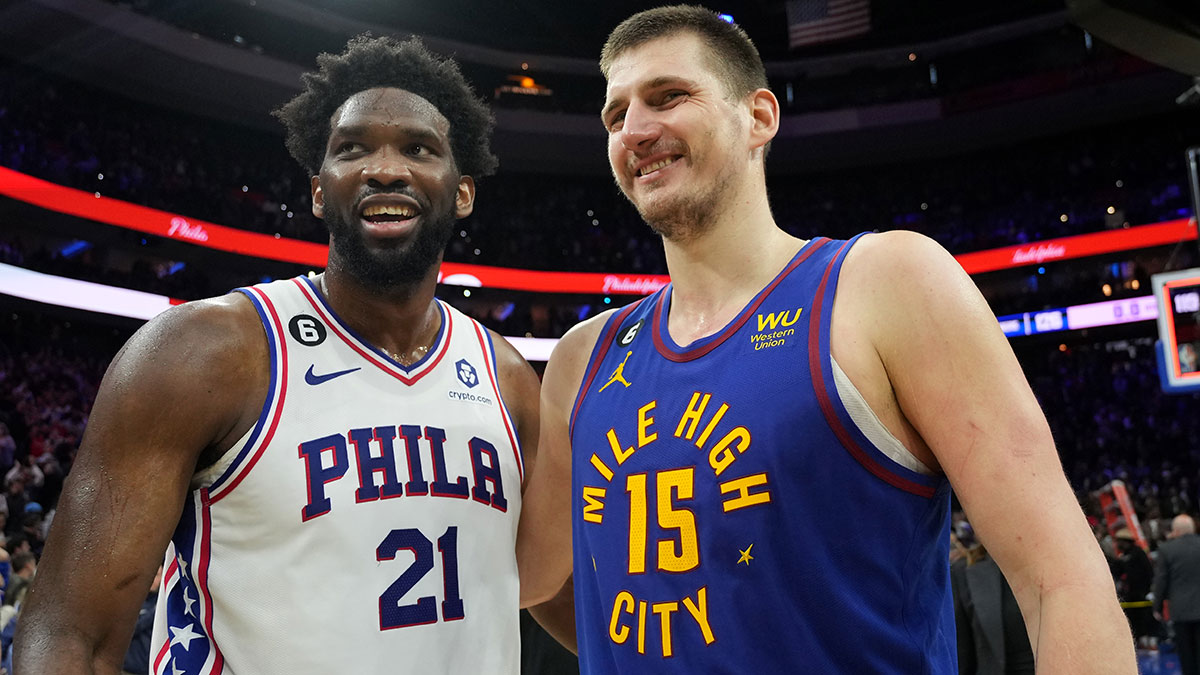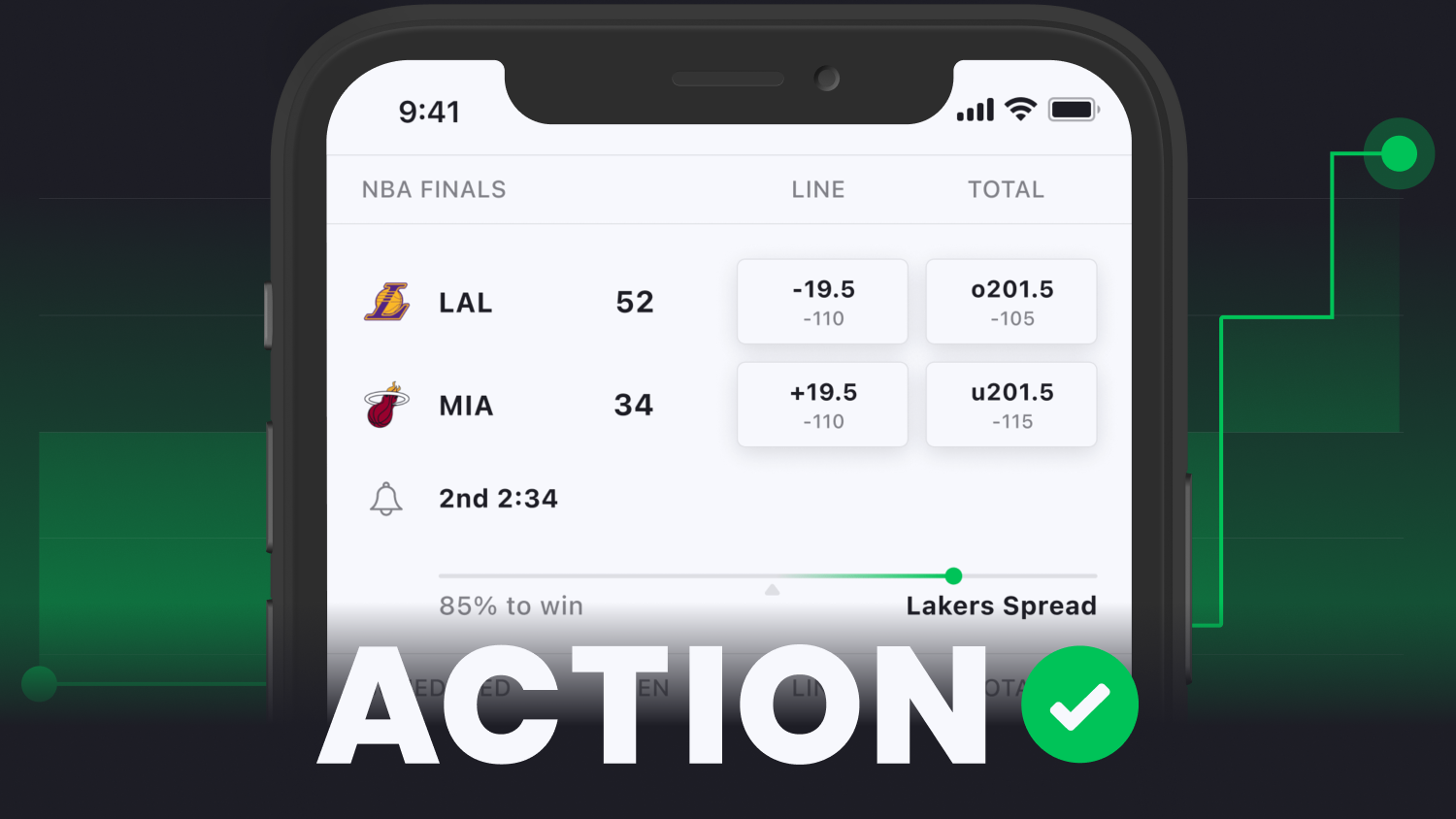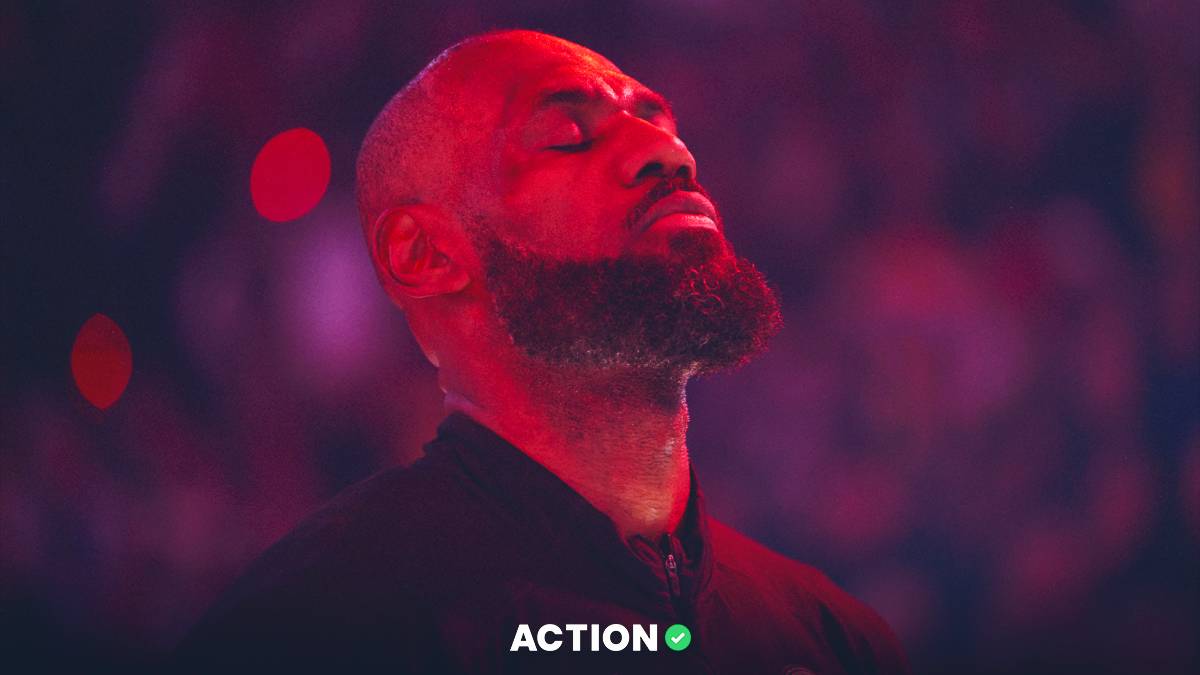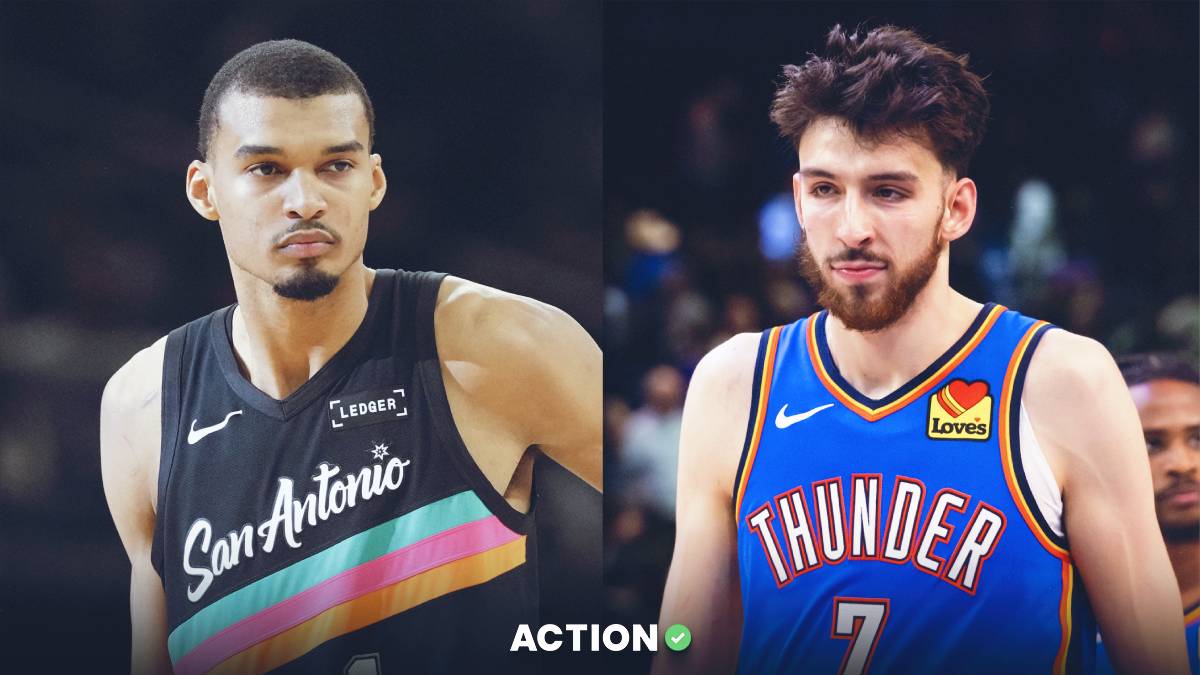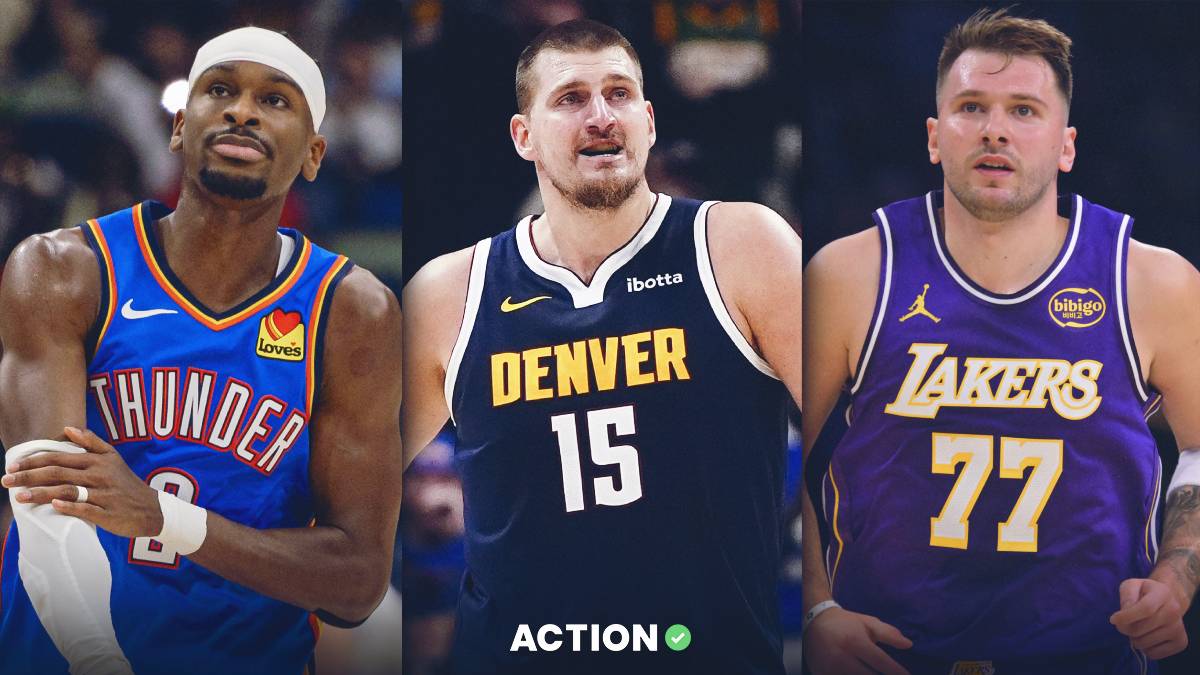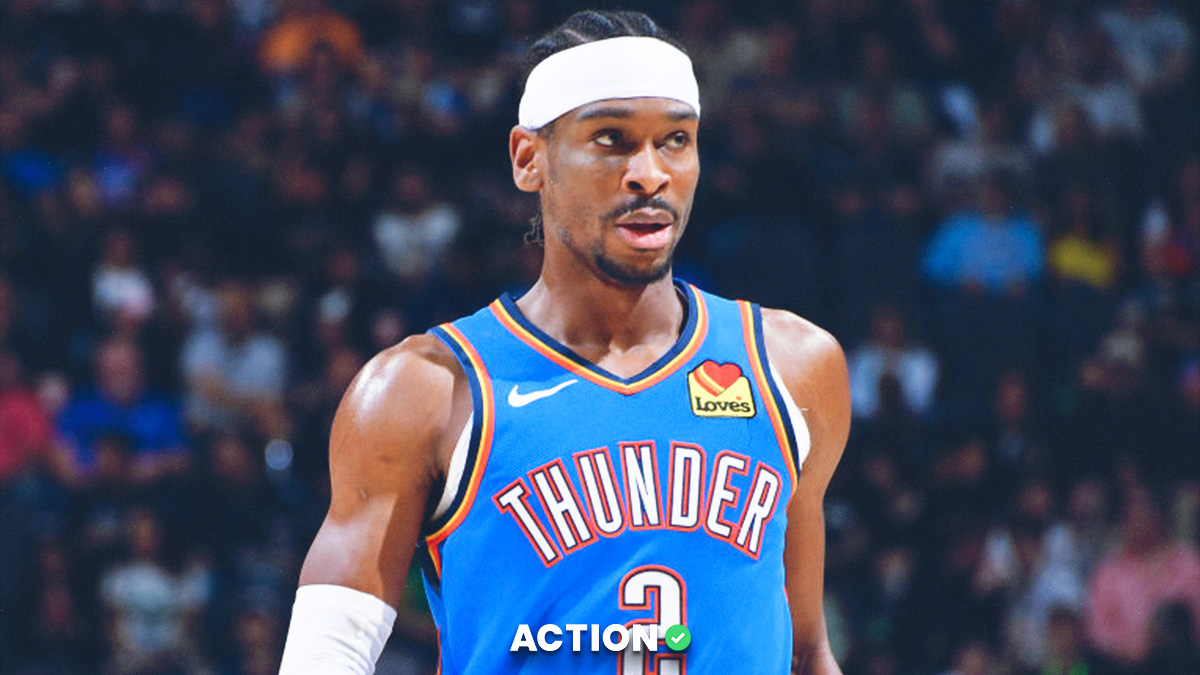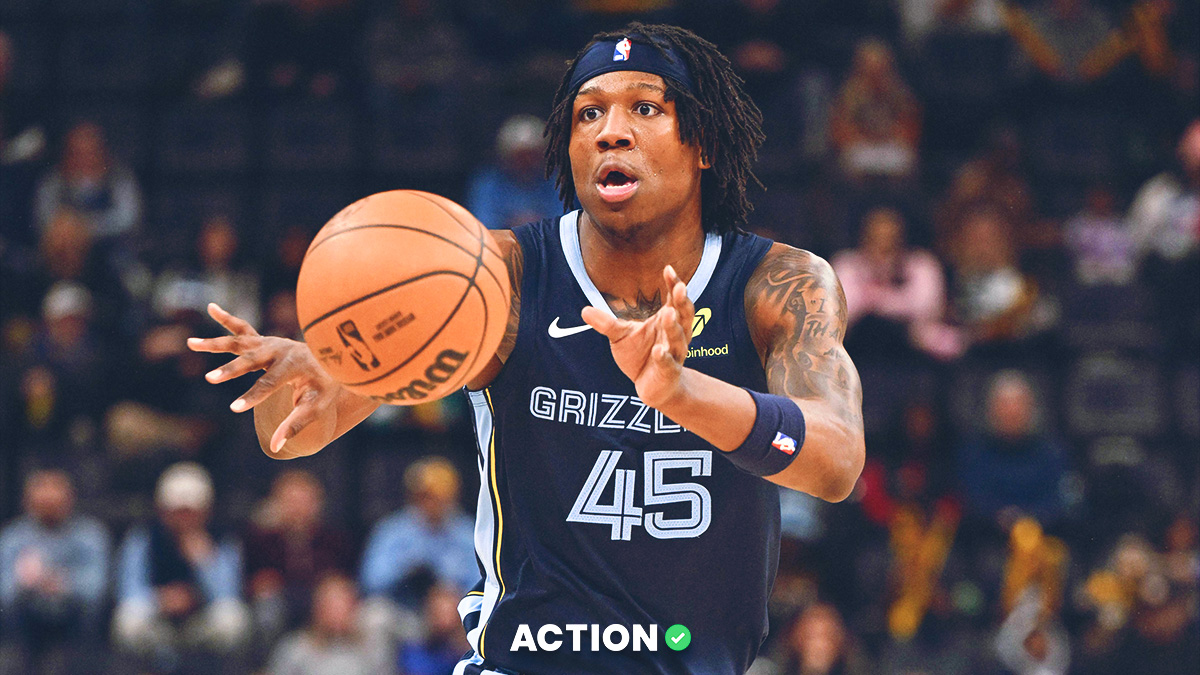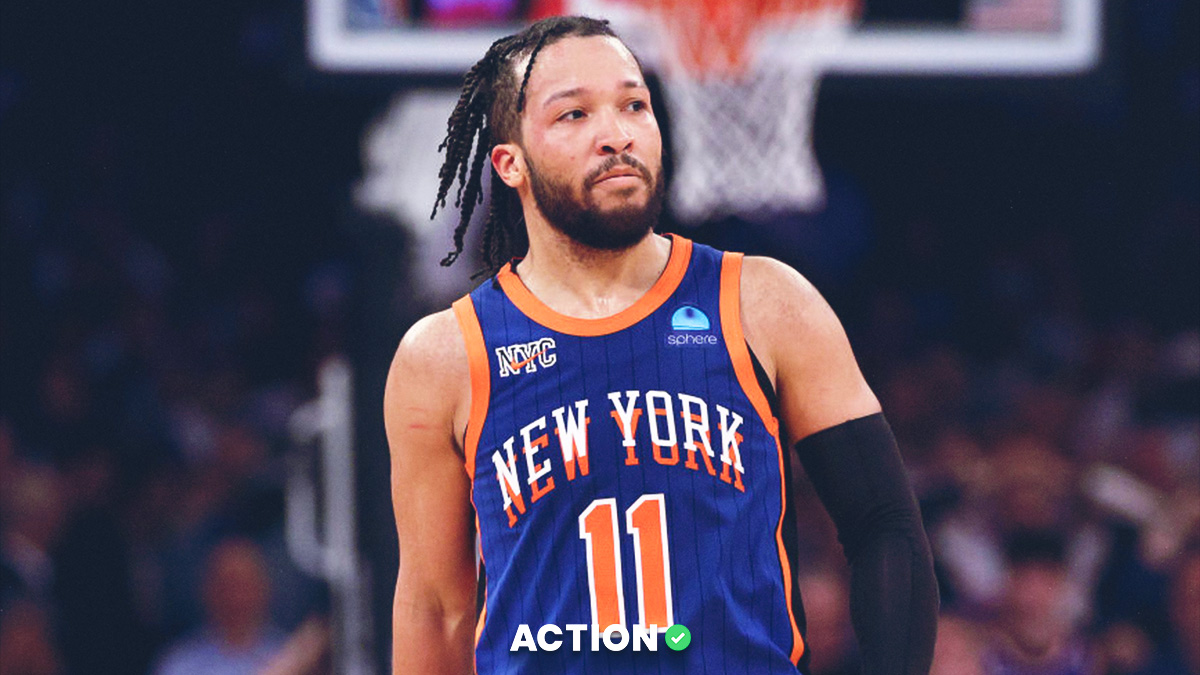There have been years when the NBA MVP race has been hotly contested and widely debated. In 2011, fresh off LeBron’s “Decision,” the conversation was impossible to remove from the dramatics of James’ departure from Cleveland and the subsequent backlash. 2017 was maybe the most closely contested year in history, with Russell Westbrook pulling away late in an excellent field.
Nothing has compared to the drama and discourse of this season, however. The conversation has devolved into a constant parade of attempts to disqualify one candidate or another, and the market has swung wildly as a result.
To try and parse it out, here are six questions to ask when trying to determine who the 2022-23 NBA MVP should be.
Who should win?
1. How do you define "most valuable?"
It’s obvious, and I start with it every year, but it’s essential. Don’t skip this step! You need to be able to put into words what valuable in the NBA means to you. You can define it in whatever way you prefer: “best player in the league,” “most important to his team’s success,” “raises his team’s ceiling,” “scores the most points on an elite team” or any other rubric you want to devise.
For me, I’ve chosen to define it as “most impactful towards winning.” That cuts away the problems of trying to balance out differences in quality of teammates, allows us to consider the actual performances and winning percentage rather than the hypothetical, ensures you have to have been available and establishes a through line of performance that leads to team success.
But however you define it, that should be your consistent standard.
2. How much do winning and games played matter?
We’re splitting hairs between the three major candidates. They’re all within two games of one another. But for a lot of voters, it’s a central question that cuts through what they feel is analytical noise.
For the record, the winning percentage when the three candidates play at least one minute:
- Joel Embiid: 66% in 62 games
- Giannis Antetokounmpo: 73.1% in 61 games
- Nikola Jokic: 71.6% in 67 games
Neither Embiid nor Giannis will play in more than 70 games. Embiid has the lowest win percentage. Both win percentage and games played can change by the end of the season. This is close enough to put it in perspective.
But too often the argument gets boiled down to “(Player) has their team as the (X) seed.” The Nuggets can finish with the 1st seed in the West with a worse record than the 3rd seed in the East. So how much do you care about winning vs. “winning relative to the rest of the conference you happen to play in?”
3. Advanced analytics boondoggle?
Don’t throw the numbers out. Work to put them in context. Understand that a lot of the advanced metrics overly reward center assists because of their relative contributions historically, but that not all of them do. Learn how to differentiate between player-centric stats and team-centric stats, and what the link is between performance and those metrics.
The one thing I would beg you not to do is the simplest and dumbest argument that is used in these evaluations: the “(X) player is ranked high therefore the entire metric should be thrown out.”
This is just a preposterous take that has permeated the internet.
Defensive metrics are a struggle in the NBA. They’ve come a long way, but if you’re really going to try and assess defense through stats, you’re going to need about 12 different measures. However, when a stats says that a bad defensive player is good at defense, it’s actually saying “this player produces the defensive stats this metric tracks” or “the defense performs a certain way when this player is on the floor.”
When an overall, big-picture metric says that some random player is better than an All-Star, it means that in the things the metric is measuring, that player is having a better season, which happens all the time.
These metrics are built by people who focus on stats. You don’t have to agree with the value of what they’re trying to measure. I’m never going to consider PER for wings in the NBA; it values rebounds and volume shot attempts so volume scorers and bigs look better.
If we’re talking about on-court defensive rating, you have to look at how the other players that player shares the floor with perform when the player in question is not on the floor. The Celtics have a better defensive rating with Jayson Tatum and Jaylen Brown without Marcus Smart than with him. (And better with Smart and without either one of the others.)
You also have to know when and when not to consider the off-court numbers.
Jokic’s on-off splits are insane. Do you know why? Because the Nuggets destroy worlds when he’s on the floor, but also because they have a top-heavy roster construction with five players making $129 million. That takes up significant resources which leaves the bench light on talent. They have one of the worst benches in the NBA. Does Jokic get credit for the fact that the front office literally did not have cap space to add more rotation players because the team is built to win with their starters?
Now, the fact that when Jokic is on the floor, they win by more points (pace-adjusted) than any other heavy rotation player in the league matters, in my estimation. That’s about how he plays, and how he helps the Nuggets play. But using the “without him, they look like garbage” argument is a disservice to the context of how these teams play.
These are the kinds of things you should use when evaluating the numbers — and you shouldn’t focus too much on just one number.
There are about 15 metrics that say Jokic is the best — or most impactful — player in the league. That doesn’t make it iron clad or decided. But not all these metrics measure the same things; not all of them are flawed in the same way. That indicates something about his performance.
Finally, if we’re considering the statistical performances of players, whether they are advanced in Jokic’s case, or even just points per game in Embiid’s case, we have to consider the inflated statistical era we’re in.
Five of the top-10 teams in all-time offensive rating are from this season. Four of the top-20 scorers per 100 possessions all time are from this season. If scoring is easier than ever, and efficiency is maximized, then we have to put those numbers into context.
(I’m forced to note the same isn’t true for the advanced metrics. There aren’t a disproportionate amount of players from this season in the top 20 of BPM, VORP, Win Shares, PER, etc.)
4. How important is precedent to you?
Let me give you the simplest way to figure out precedent. “What about defense?” is a popular NBA talking point year after year in the MVP conversation.
Russell Westbrook. Steph Curry. James Harden. Allen Iverson. Steve Nash. Dirk Nowitzki. Nikola Jokic. All of those players won the award. So historically, defensive balance has not been that important.
You can argue that you shouldn’t be beholden to past mistakes. The award should have considered defense more strongly in the past, so you’re going to correct that now.
Jokic presents the most issues here. No player has won three straight MVPs since Larry Bird in 1986. No player has won three in a row without having won a title. That’s tilted a lot of the conversation. If that precedent matters to you —more specifically if Jokic not breaking that precedent matters to you — then that has to factor into your decision.
Which leads us to a more broad question …
5. What does the award encapsulate?
I will admit to finding this question incredibly stupid, but it has to be asked.
The award is meant to be for the regular season. The idea is that the regular season means something, and so the performances can be judged, evaluated and an award can be based off production within it.
However … the league purposefully does not specify this. You don’t have to consider it a regular season award. If you wanted to, you could define it in 10-year rolling intervals. So if you want to consider playoff success the season prior as part of it, you could.
You have to decide whether you want to reward the six months of regular season play each season.
If you want to be consistent, you have to think about this impact year over year. It’s “wrong,” in so much as deciding an MVP can be “wrong,” to place a one-year award in a multiyear context. Are you bound more to holding up the history and legacy of the award and not placing one player unfairly on a level he doesn’t deserve? And if you are, are you willing to say, openly, that you’re not going to give it to the most deserving player?
This is the decision tree, simplified.
Are you willing to give the award to someone who isn’t the most deserving? (This doesn’t have to be Jokic, but if you’re going to consider precedent first, you have to start here.)
If you are willing to do that, is the history of the award more important than the most deserving player?
That’s how you can reach a decision that Jokic can be most valuable and still shouldn’t win the award.
If it’s based on playoff performance, is it fine for a player to win one award if they don’t reach a Finals but not two? Two, but not three? Where are the boundaries? It’s fine to set these arbitrarily, but you need to determine it.
As far as my view, I can’t get past the idea of giving the award to a player who wasn’t the most valuable during the 2022-23 season. That doesn’t mean Jokic; I would not have him No. 1 on my fictional ballot. I start with: “The MVP is defined as the player who positively impacted his team in winning the most during the 2022-23 season.” I could not get around giving it to Jokic, if he were most impactful.
6. Most valuable in the NBA, or most valuable among the candidates?
This is a Joel Embiid question, up front.
The best argument for the 76ers center is something along the lines of: between Embiid, Nikola Jokic and Giannis Antetokounmpo, Embiid is better offensively than Giannis this season based on shooting and scoring, and better than Jokic is any season, under any conditions, to the degree that he is most deserving. Embiid is the best two-way player … among the three candidates.
It’s difficult to argue Embiid is a better two-way player than Giannis, given how dominant the latter is on the defensive end. Embiid is excellent, and borderline elite. But he’s not mentioned in DPOY conversations the way Giannis is on the fringes.
Embiid is also probably not the best offensive player in the league. If the NBA had an Offensive Player of the Year award, it would almost certainly go to Jokic.
What is Embiid the best at?
There is an argument that he’s the most dominant player in the NBA this season. Giannis has surpassed Embiid in field goal efficiency, effective field goal efficiency, and 2-point field goal efficiency. So if we’re talking about being able to impose your will offensively, Giannis is still there. (Embiid remains a vastly superior jump shooter.)
However, if we say “look, these are the 3-5 most valuable players this season, and we’ll decide between them,” then his case gets much stronger.
The Bucks offense isn’t nearly as good as the Sixers'. On-court, off-court, doesn’t matter, the Sixers offense is better. So even if Giannis is “more dominant” or contributes more with assists, etc., then why isn’t the offense better?
The gap between Jokic and Embiid defensively is wide. There is a little bit of a problem in using the same logic used in the Giannis argument above here. Jokic’s on-court defensive rating is 111.5; Embiid’s is 109.6 after Jokic's tailed off and Embiid’s surged late. That difference isn’t necessarily reflective of a monster gap between the two players in terms of the impact they have on the defense.
To put it another way: If Jokic is that detrimental to the Nuggets defense, why isn’t the defense that much worse with him on the floor? However, it’s undeniable that Embiid is a much, much better defender — eye test, metrics, player reputation … everything backs that up.
Giannis wins more games. The Nuggets win by more when Jokic is on the floor. Where’s the lane for Embiid, league-wide?
But that ignores the reality, this is a three-man race at this point in the season. And if you build the case for Embiid relative to the other two, specifically, you can very easily reach a point where he edges them out.
There are many ways to reach an answer.
The key here is that you can ignore analytics if you want to. You can look to them as a guide. You can approach the season from a narrative standpoint. But you should build out the implications of the answers to these questions to figure out what matters to you, specifically.
The MVP is often discussed as a "narrative award." The voter bloc is made up of wildly different voters across the 100 who are selected, and that bloc is very different than it was 10 years ago.
There isn't one answer to it, especially this season. And if you're looking to bet the award, bear in mind how differently voters will answer the questions above before you place your wager.


